第91章 Appendix I:Production,Consumption,Distribution,Exc
Rent cannot be understood without capital,but capital can be understood without rent.Capital is the economic power that dominates everything in bourgeois society.It must form both the point of departure and the conclusion and it has to be expounded before landed property.After analysing capital and landed property separately,their interconnection must be examined.
It would be inexpedient and wrong therefore to present the economic categories successively in the order in which they have played the dominant role in history.On the contrary,their order of succession is determined by their mutual relation in modern bourgeois society and this is quite the reverse of what appears to be natural to them or in accordance with the sequence of historical development The point at issue is not the role that various economic relations have played in the succession of various social formations appearing in the course of history;even less is it their sequence "as concepts"(Proudhon )(a nebulous notion of the historical process),but their position within modern bourgeois society.
It is precisely the predominance of agricultural peoples in the ancient world which caused the merchant nations --Phoenicians,Carthaginians --to develop in such purity (abstract precision).For capital in the shape of merchant or money capital appears in that abstract form where capital has not yet become the dominant factor in society.Lombards and Jews occupied the same position with regard to mediaeval agrarian societies.
Another example of the various roles which the same categories have played at different stages of society are joint-stock companies,one of the most recent features of bourgeois society;but they arise also in its early period in the form of large privileged commercial companies with rights of monopoly.
The concept of national wealth finds its way into the works of the economists of the seventeenth century as the notion that wealth is created for the State,whose power,on the other hand,is proportional to this wealth --a notion which to some extent still survives even among eighteenth-century economists.This is still an unintentionally hypocritical manner in which wealth and the production of wealth are proclaimed to be the goal of the modern State,which is regarded merely as a means for producing wealth.
The disposition of material has evidently to be made in such a way that (section)one comprises general abstract definitions,which therefore appertain in some measure to all social formations,but in the sense set forth earlier.
Two,the categories which constitute the internal structure of bourgeois society and on which the principal classes are based.Capital,wage-labour,landed property and their relations to one another.Town and country.The three large social classes;exchange between them.Circulation.The (private)credit system.Three,the State as the epitome of bourgeois society.Analysis of its relations to itself.The 44unproductive"classes.Taxes.National debt.Public credit.Population.Colonies.Emigration.Four,international conditions of production.International division of labour.International exchange.Export and import.Rate of exchange.Five,world market and crises.4.PRODUCTION Means of Production and Conditions of Production.
Conditions of Production and Communication.
Political Forms and Forms of Cognition in Relation to the Conditions of Production and Communication.
Legal Relations.Family Relations Notes regarding points which have to be mentioned in this context and should not be forgotten.
1.War develops [certain features]earlier than peace;the way in which as a result of war,and in the armies,etc.,certain economic conditions,e.g.,wage-labour,machinery,etc.,were evolved earlier than within civil society.The relations between productive power and conditions of communication are likewise particularly obvious in the army.
2.The relation of the hitherto existing idealistic historiography to realistic historiography.In particular what is known as history of civilisation ,the old history of religion and states.(The various kinds of historiography hitherto existing could also be discussed in this context;the so-called objective,subjective (moral and others),philosophical [historiography).)3.Secondary and tertiary phenomena ,in general derived and transmitted ,i.e.,non-primary,conditions of production.The influence of international relations.
4.Reproaches about the materialism of this conception;relation to naturalistic materialism.
5.Dialectics of the concepts productive power (means of production)and relations of production,the limits of this dialectical connection,which does not abolish the real differences,have to be defined.
6.The unequal development of material production and,e.g.,that of art.The concept of progress is on the whole not to be understood in the usual abstract form.Modern art,etc.This disproportion is not as important and difficult to grasp as within concrete social relations,e.g.,in education.Relations of the United States to Europe.However,the really difficult point to be discussed here is how the relations of production as legal relations take part in this uneven development.For example the relation of Roman civil law (this applies in smaller measure to criminal and constitutional law)to modern production.
7.This conception appears to be an inevitable development .But vindication of chance.How?(Freedom,etc.,as well.)(Influence of the means of communication.World history did not always exist;history as world history is a result.)
8.The starting point is of course the naturally determined factors ;both subjective and objective.Tribes,races,etc.